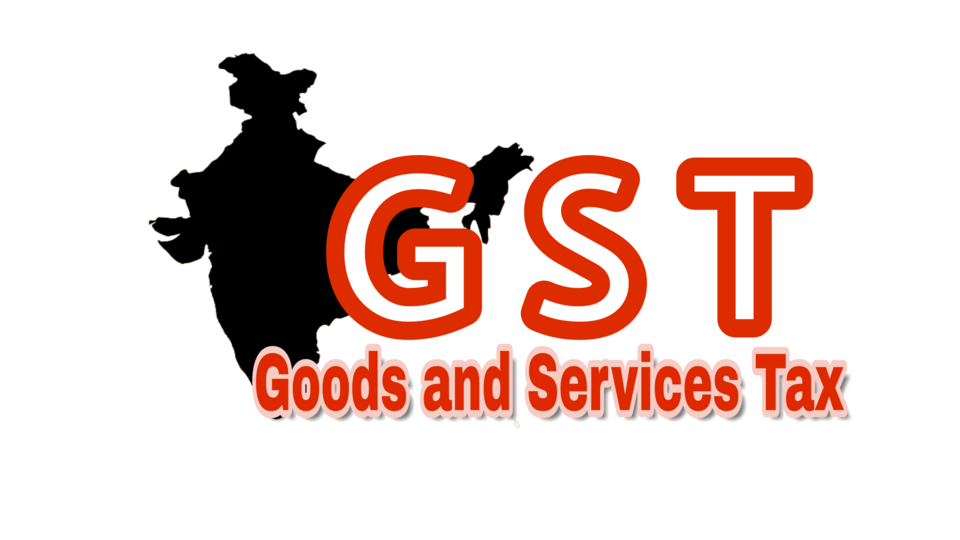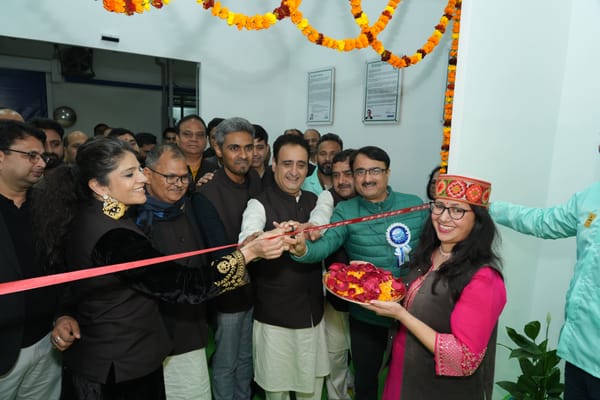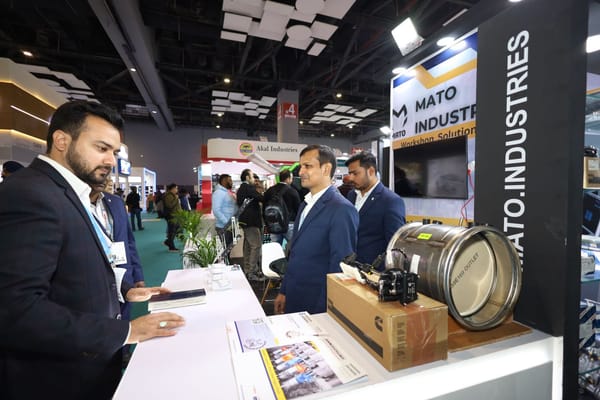Post GST Reform comments

Bizmudra has compiled a list of statements from Industry leaders regarding the new reforms put forth by the GST Council:
Mr Shailesh Chandra, President, SIAM;
“Automobile Industry welcomes the Government’s decision to reduce the GST on vehicles to 18% and 40%, from earlier rates of 28% to 31% and 43% to 50%, respectively, especially in this festive season. This timely move is set to bring renewed cheer to consumers and inject fresh momentum into the Indian Automotive sector. Making vehicles more affordable, particularly in the entry-level segment; these announcements will significantly benefit first-time buyers and middle-income families, enabling broader access to personal mobility. We also thank the Government of India for continuing with GST rate of 5% on Electric Vehicles, which will help sustain the ongoing momentum towards sustainable mobility.”
Mr Venkatram Mamillapalle, Managing Director, Renault India;
“The GST reduction on the entry level car segment (petrol below 1200 cc and diesel below 1500 cc) from 28% to 18%, and a uniform rate for auto components at 18%, make personal mobility significantly more affordable for the masses. The rationalized GST will ease household expenses, fuel consumption, and create a multiplier effect on long-term economic growth. With reduced taxes on tractors, agri-inputs and farm equipment, the GST reform will boost rural demand, strengthen agri-linked enterprises, and create new growth avenues in semi-urban and rural India. This will unlock fresh demand in Tier 2, Tier 3, and rural markets where improving farm incomes are driving aspirations for car ownership. Renault is well positioned to leverage this shift, and we believe the reform will accelerate rural and urban demand alike, boost manufacturing, and contribute strongly to India’s economic momentum.”
Mr. Vinod Aggarwal, Vice Chairman EML and Managing Director & CEO of VE Commercial Vehicles;
“We wholeheartedly applaud the Finance Minister and the GST Council for reducing GST on commercial vehicles—buses and trucks—from 28% to 18%. This will not only reduce logistics costs for the economy, but encourage customers to upgrade their fleets with modern, fuel efficient and safer trucks and buses. For buses, this will encourage much-needed fleet modernisation by state transport corporations and private operators, strengthening public mobility. For trucks, it will ease cost pressures for fleet operators and stimulate demand in logistics and freight, which are critical for India’s growth momentum. Together with the reduction in GST on auto components, the GST reforms reinforce the government’s commitment to enabling sustainable growth of the auto sector.”
Mr. Shenu Agarwal, MD & CEO, Ashok Leyland;
“The GST rate reductions announced by the Hon’ble Finance Minister represent a forward-looking step towards simplifying India’s tax structure and accelerating economic momentum. The shift to a streamlined two-tier system of 5% and 18% will not only ease compliance but also bolster key sectors, uplift consumer sentiment, and reduce the financial burden on the common man. Crucially, this move will help mitigate the impact of the recently imposed US tariffs. The specific relief for the commercial vehicle industry is especially welcome. On one hand, it will spur freight traffic, and on the other, it will bring down the cost of buses and trucks, unleashing demand trajectory for commercial vehicles.”
Mr. Rajesh Jejurikar ED & CEO -Auto and Farm Sector, M&M;
“We applaud the Government for this landmark GST rationalisation, which will have a far-reaching positive impact across the automotive and farming sectors . The move makes tractors and farm machinery more affordable for farmers, reduces costs for commercial vehicles and improves accessibility for personal mobility through rationalisation of rates across all SUVs. Together, these measures are expected to stimulate demand, and drive inclusive growth across the entire ecosystem. We also appreciate the continuation of the 5% GST rate on EVs, which is a critical enabler of India’s clean mobility vision. This measure will further accelerate the adoption of electric vehicles and reinforce India’s leadership in sustainable, green transportation.”
FADA President Mr C S Vigneshwar;
"The 56th GST Council meeting marks a watershed moment for India’s automobile retail industry. FADA warmly welcomes the bold and progressive reforms which simplify the tax structure, lower rates for mass mobility, and bring consensus across all States. This is a decisive step that will boost affordability, spur demand, and make India’s mobility ecosystem stronger and more inclusive. One area that may needs earliest clarification is about levy and treatment of cess balances currently lying in dealers’ books, so that there is no ambiguity during transition. FADA remains committed to working closely with the Government and GST Council to make GST 2.0 a model reform — simple, transparent and growth-oriented for both industry and consumers."
Sudarshan Venu, Chairman, TVS Motor Company;
"We applaud the government for taking consistent steps towards boosting growth and enhancing the growing middle class’s spending power - all towards realising PM’s vision of Viksit Bharat 2047. The GST tax cuts is a major move by the government to further turbocharge growth. It will significantly boost consumption across segments of the society. For our industry especially, it’s a welcome move as it will help 2Ws become more accessible and also help those looking to upgrade."
Mr. Swapnesh R Maru, Deputy Managing Director, Toyota Kirloskar Motor;
“The relief extended to smaller vehicles, along with the rationalization of levies on larger ones, will enhance mobility for the common man by making it more accessible and affordable, while at the same time stimulating growth across the automotive sector. As a next step , it is essential to reduce fossil fuel imports and achieve our stated national objectives of energy self-reliance, promotion of bio-fuels and decarbonisation. Given India’s rapid economic growth that is bound to increase the demand for energy, particularly fossil fuel consumption by transportation sector, it is crucial that all cleaner and greener technologies are also promoted and incentivised through suitable policy measures, including taxation so that these are preferred by consumers over the conventional petrol and diesel vehicles.”
Rajeev Singh, Managing Director, BenQ India;
"The recent GST reform is a decisive move toward simplifying and streamlining the tax structure for the electronics industry. By consolidating the tax slabs into a clear and predictable two-tier system, it reduces compliance complexities and fosters a more transparent business environment. This reform is set to benefit manufacturers, retailers, and consumers by lowering costs across the supply chain, encouraging competitive pricing, and stimulating demand for a wide range of electronic goods. Moreover, it supports the government's vision to enhance local manufacturing and innovation, providing a strong foundation for sustainable growth in the sector. Notably, the reduction of GST rates on products such as monitors and projectors further eases costs for businesses and educational institutions, promoting wider adoption of digital technology solutions across India."
Ravi Agarwal, Co-Founder and Managing Director, Cellecor;
"The rationalization of GST rates to a uniform 18% on products such as TVs, monitors, air conditioners, and dishwashers is a particularly positive move. It not only enhances affordability for Indian households but also simplifies compliance and operational efficiency for manufacturers and brands like Cellecor. Equally significant is the alignment of GST on lithium-ion batteries at 18%. This will have a direct impact on the ecosystem of wireless, portable, and smart devices by reducing input costs across the value chain. For a fast-growing Indian brand like Cellecor, this encourages us to accelerate innovation in smart gadgets and energy-efficient products while keeping them accessible to a wider base of consumers.
Aditya Khemka, Managing Director, CP PLUS;
“The recent GST revisions are a progressive step for India’s technology ecosystem. Rationalizing taxes on consumer electronics, critical components like silicon wafers, and logistics will help reduce the cost of hardware that powers modern surveillance infrastructure, making advanced security solutions more accessible to businesses, housing societies, and urban centers. While adjustments may be needed on account of higher GST on outsourced job work, the overall direction supports affordability, faster adoption, and strengthens the government’s vision of Atmanirbhar Bharat by boosting local manufacturing and value creation. For the surveillance industry, this creates an important opportunity to accelerate organized deployment and deliver safer, smarter communities across the country.”
Pankaj Rana, Chief Executive Officer, Hisense India;
“The government’s recent GST reforms on televisions and air conditioners come at a critical juncture. By reducing price barriers, these reforms enable a larger and more diverse consumer base, especially in emerging markets and Tier-2 and Tier-3 cities, to access high-quality, energy-efficient products. At Hisense India, our focus has always been to deliver global innovation at prices that resonate with Indian households, and this move makes our advanced range of our TVs and home appliances even more accessible ahead of the festive season, when families are looking to upgrade their homes. Ultimately, this reform not only improves affordability but also elevates the quality of life for millions of Indian households."
Ravi Kunwar, VP and CEO, HMD India & APAC
“The latest GST reforms mark a constructive development for diverse industries across India, with the Council’s move to consolidate rates and streamline registration and refund processes driving substantial change in business operations nationwide. By simplifying the tax structure into clear 5% and 18% slabs, these reforms are set to promote consumer savings and create more disposable income, delivering timely relief and positive sentiment ahead of the festive season. These measures reflect India’s continued pursuit of regulatory ease, and their true value will be seen in how effectively benefits extend to both consumers and industry progress—particularly in manufacturing and technology. For HMD and the broader telecom sector, we expect improved operational efficiency, greater cost predictability, and sustainable growth, reinforcing our commitment to supporting India's digital transformation and the vision of Viksit Bharat@2047. Going forward, clarity in implementation will be key to enabling all stakeholders to fully leverage these reforms.”
Mr. Manish Bandlish, Managing Director, Mother Dairy;
We commend the Union Government’s decision to reduce GST rates on a wider range of dairy products including paneer, cheese, ghee, butter, UHT milk, milk-based beverages, and ice creams. This progressive step will significantly enhance affordability and accessibility of value-added dairy products for consumers across the country. This is a particularly big boost for packaged categories, which are fast-growing favourites in Indian homes and will see stronger demand momentum going forward. As one of the country’s leading dairy organizations, we remain committed to ensuring that the advantages of this reform are effectively passed on to our consumers. By lowering the tax slabs, the move will encourage wider adoption of packaged, value-added dairy products, strengthen consumer preference for safe and quality offerings, and enable more families to enjoy wholesome dairy goodness at better value. At the same time, it will create stronger market opportunities for farmers and further energise the dairy industry as a whole.”
Mr. Vijendra Babu N, Founder, Managing Director & CEO – Micro Plastics Pvt. Ltd;
“We welcome the government’s decision to rationalize the GST rate structure. This reform will make toys more affordable for children across socio-economic segments. While lower GST on toys will enhance consumer spending it will also strengthen the domestic industry in providing affordable means for nurturing imagination and playtime for children.”
Mr. Kuldip Singh Rathee, Chairman and Managing Director, ASK Automotive Limited;
“We particularly appreciate the measures taken for the automobile sector, especially for small cars and two-wheelers up to the 350cc segment. This will provide much-needed relief to an industry that has been struggling for the last few years. The reduction of GST on entry-level vehicles from 28% to 18%, along with the retention of 5% GST on electric vehicles, will boost sales among first-time buyers and middle-income families, while also promoting new opportunities for personal mobility and last-mile connectivity. Moreover, the uniform 18% rate on auto components will strengthen the entire ecosystem by reducing ownership costs and improving supply chain efficiency. We are confident that this festive season will set new benchmarks for the Indian automobile sector.”
Mr. Anupam Thareja, MD & Co-founder, Classic Legends;
“The government’s bold and timely GST reforms will bring a tectonic shift for the greater good, echoing the historic transition from 2-stroke to 4-stroke engines. Classic Legends welcomes the GST rationalisation, especially the reduced rate of 18% for under-350cc motorcycles, which covers our 293cc and 334cc Jawa and Yezdi performance classics. While it raises the tax burden for higher cc motorcycles such as our 652cc BSA Gold Star, we accept it as the hallmark of progressive taxation. The trade-off makes mid-segment bikes accessible to a larger rider community – a win for India’s motorcycling culture. We thank the Hon’ble Finance Minister for the fresh impetus for demand that will energise the economy amid a slowdown and global tariff wars. Decades ago, our brands faded due to a policy shift; today, policy foresight is helping restore their legendary stature. We will pass on 100% of the GST benefit to our customers. Coinciding with the festive season, we are telling young Indians who aspire to own a true iconic performance motorcycle: Your time is now.”
Dr. Raghupati Singhania, Chairman & Managing Director, JK Tyre & Industries;
“The GST rate rationalisation marks a pivotal moment in India’s consumption-led growth journey. By reducing levies on essential goods, the government has somewhere eased consumer burden while catalysing fresh demand across sectors. With affordability rising and compliance simplified, it is expected to trigger a demand surge that reinforces India’s position as the world’s fastest-growing major economy. With regards to tyres reduction of GST from 28% to 18%, and on farm tyres to 5%, is a landmark reform that will give a tremendous boost to the tyre industry and the mobility ecosystem. Tyres are an essential part of everyday life, and this progressive step will benefit both consumers and manufacturers alike. For fleet operators and farmers, lower GST translates into reduced input costs and improved operating efficiency, thereby strengthening demand in these vital segments. Combined with our continued focus on innovation and premiumization, this reform empowers us at JK Tyre to serve customers more effectively and contribute to sustained industry growth.”
Mr. Unsoo Kim, Managing Director, Hyundai Motor India;
“We, at Hyundai Motor India Limited (HMIL) welcome the landmark GST reforms announced by the Government of India. This revolutionary step will provide a strong impetus to the Indian economy, enhance buoyancy and further strengthen consumer confidence. By reducing the tax burden on essential goods, the Government has laid the foundation for inclusive growth and a robust, consumption-led economy. The GST overhaul will directly benefit the automotive sector. The announced reforms align seamlessly with the Government’s commitment to Viksit Bharat and the Make in India initiative, encouraging domestic manufacturing and boosting demand across both urban and rural markets. Notably, 60% of our ICE portfolio will now fall under the 18% slab rate, with the remainder at 40%. HMIL remains committed to supporting the Government of India’s vision and contributing meaningfully to the nation’s journey toward becoming a global manufacturing powerhouse.”




